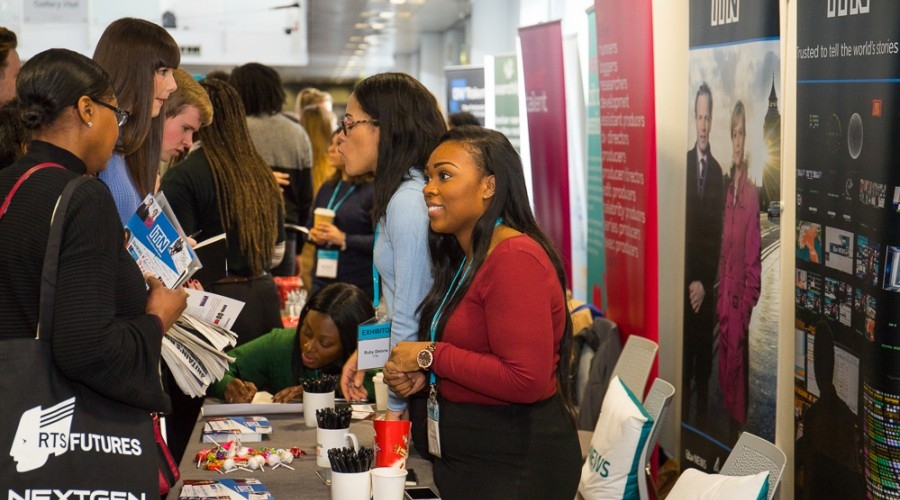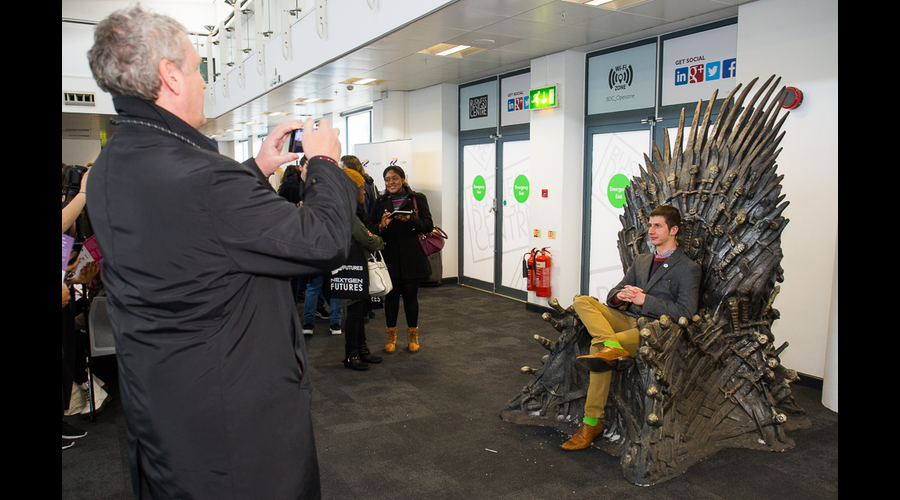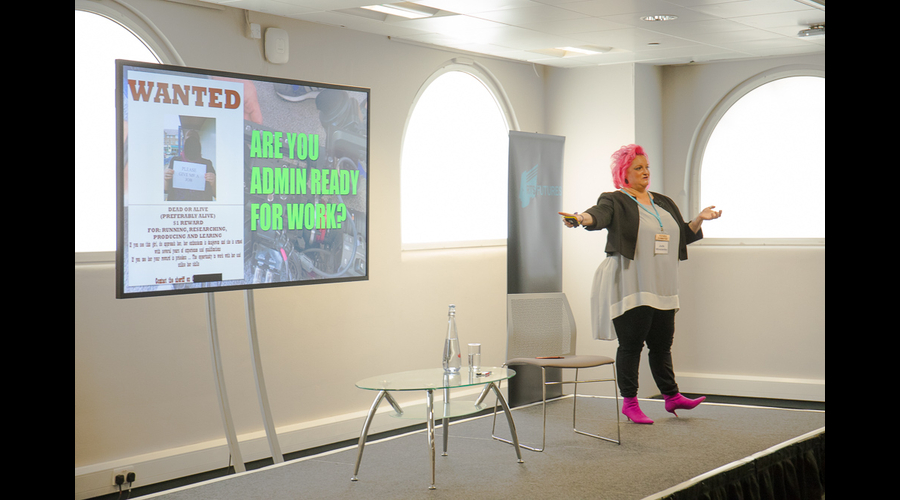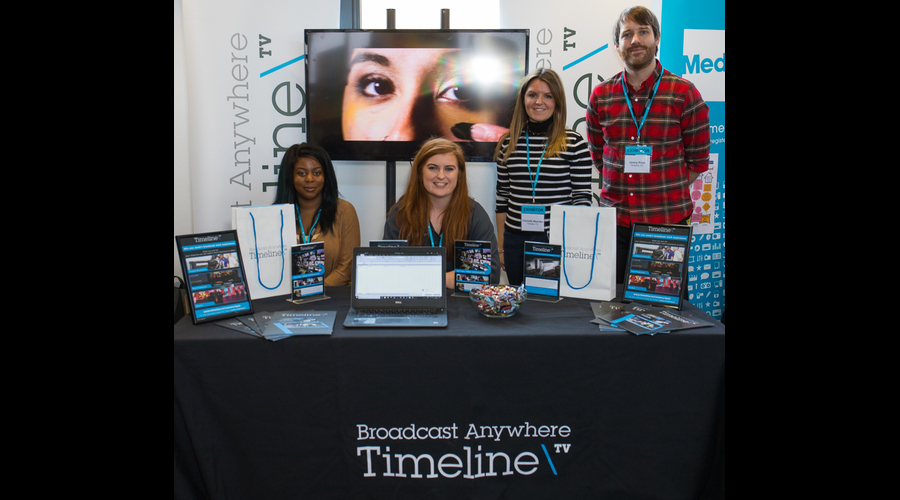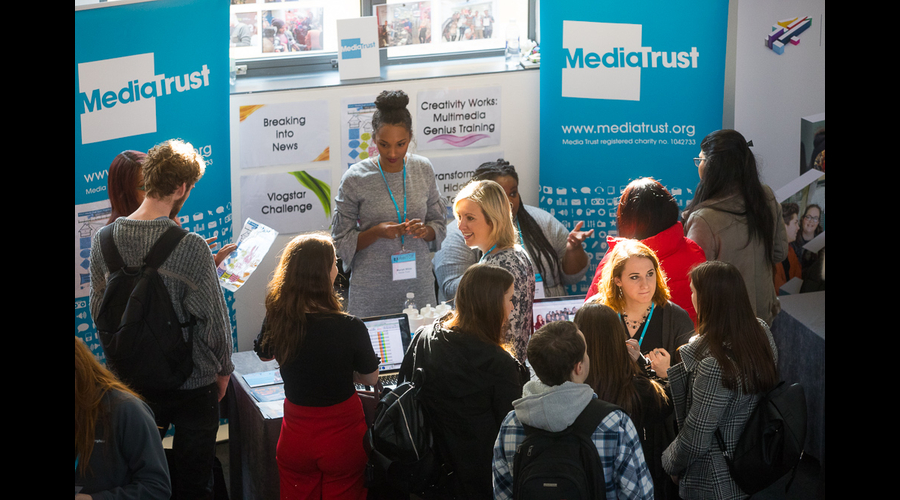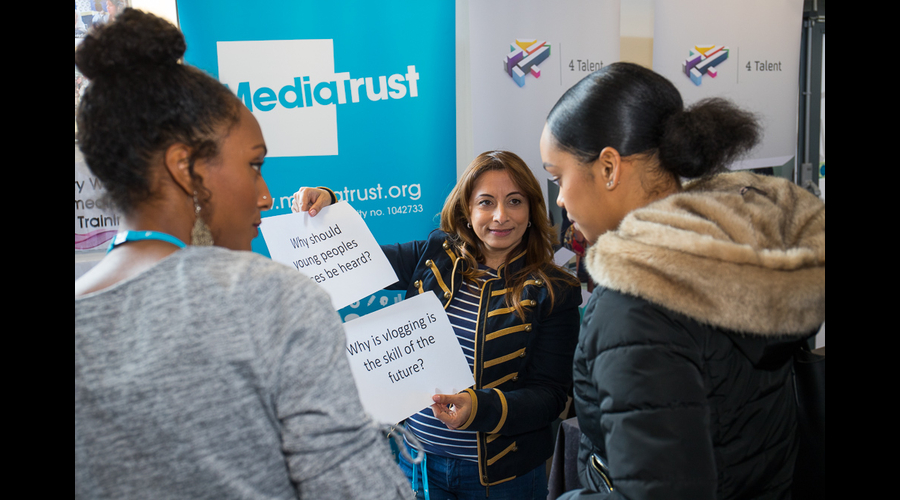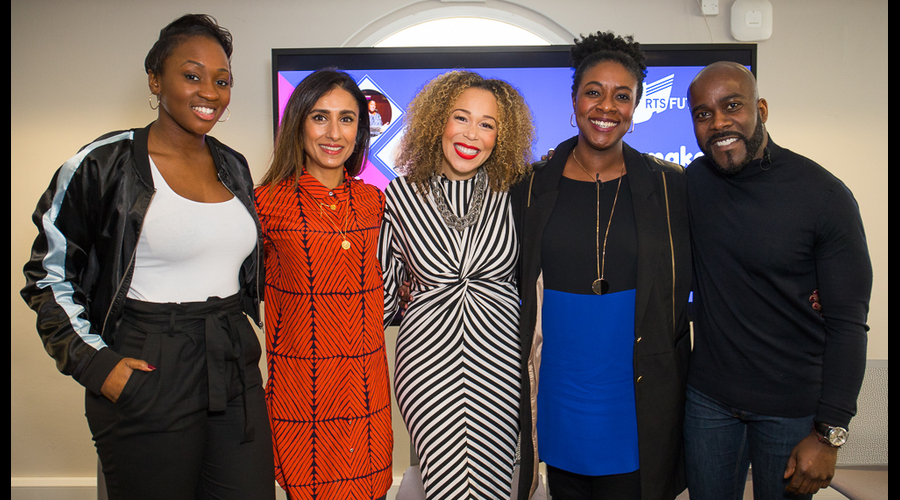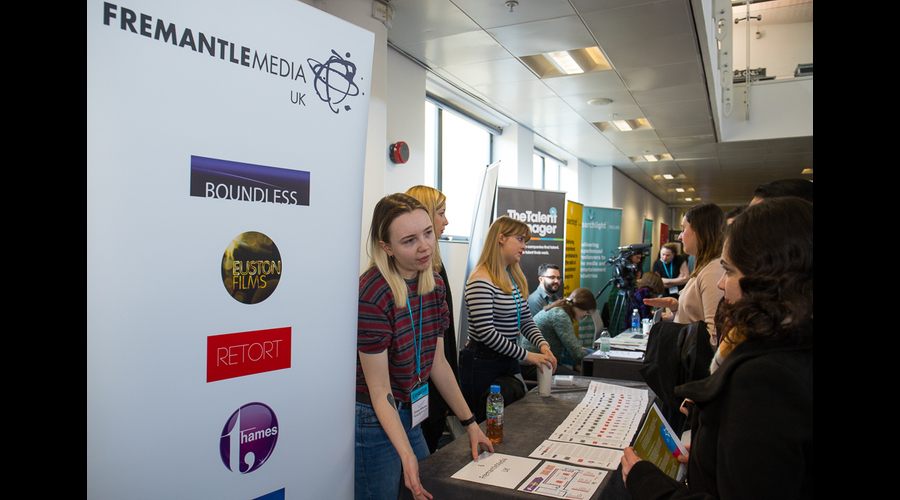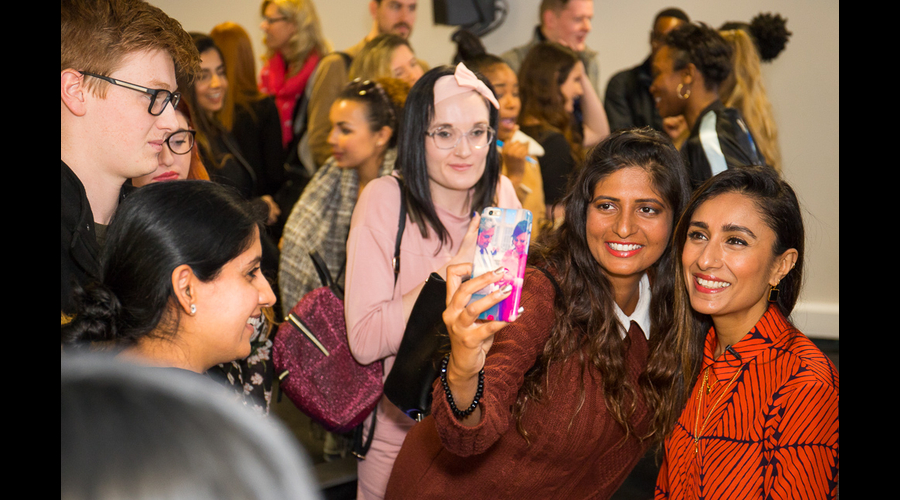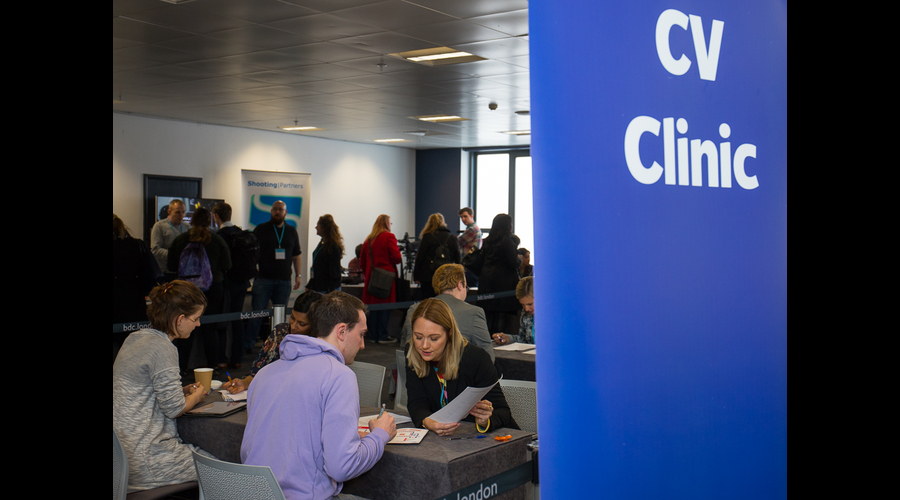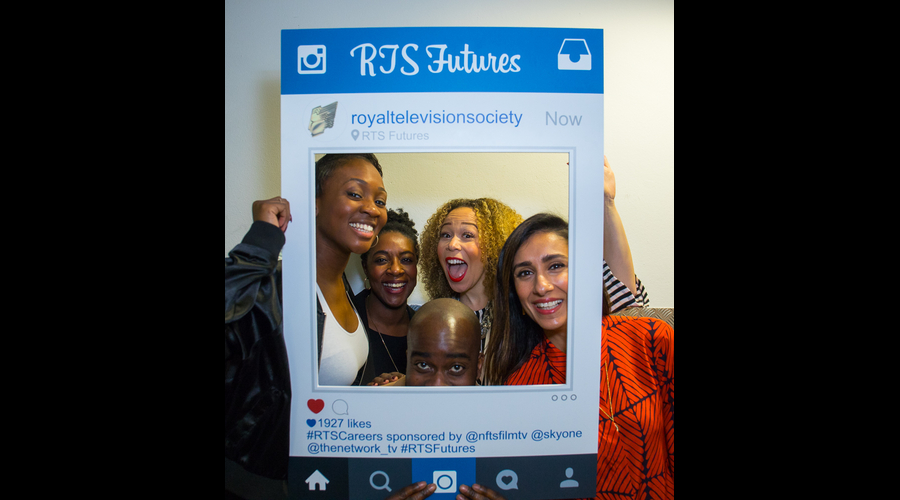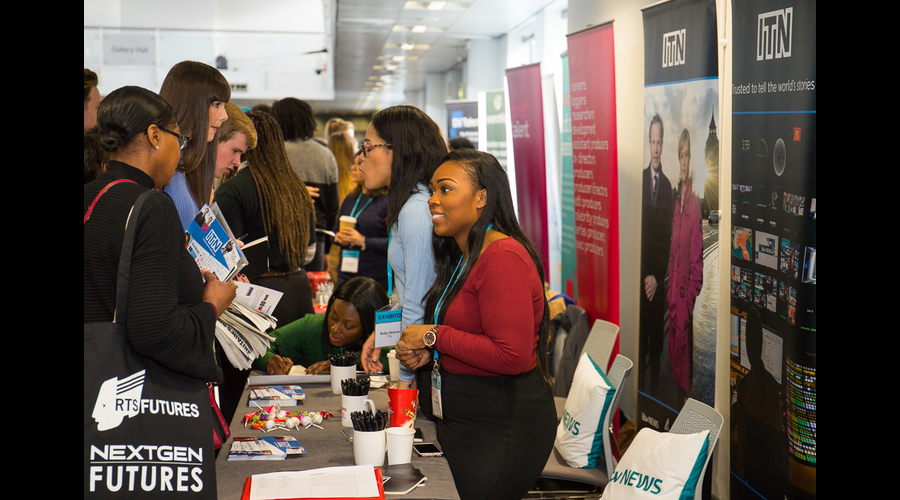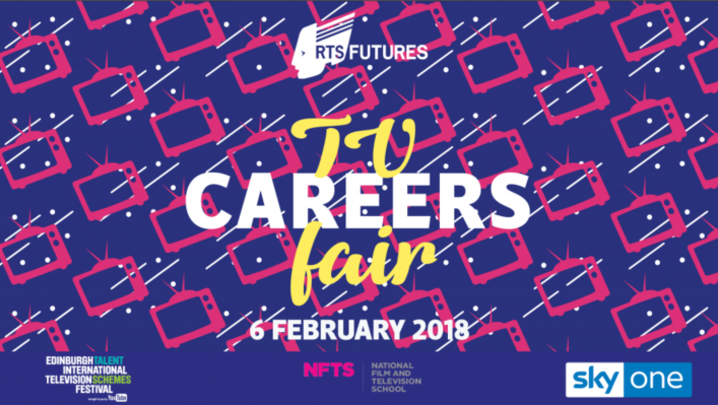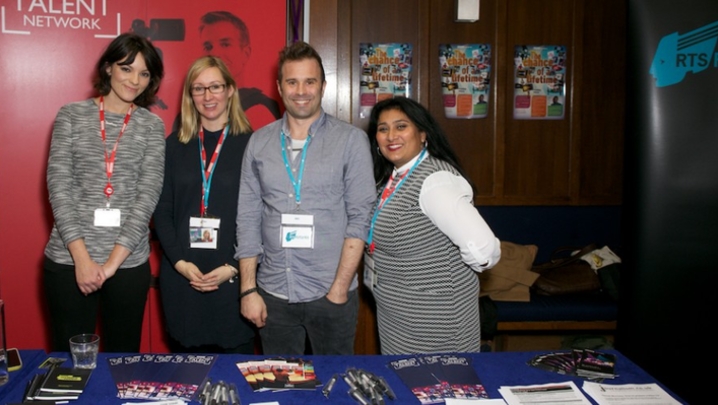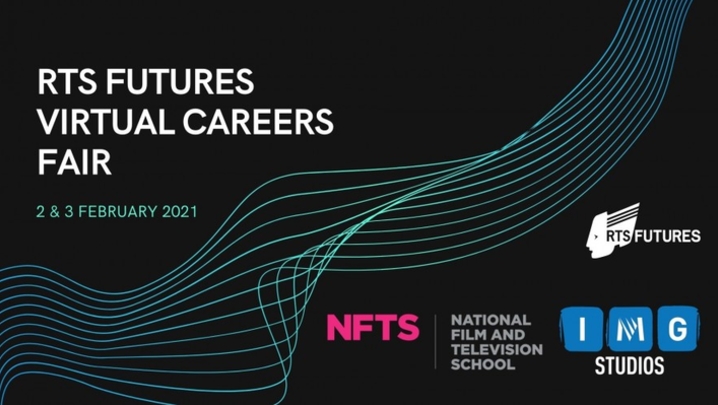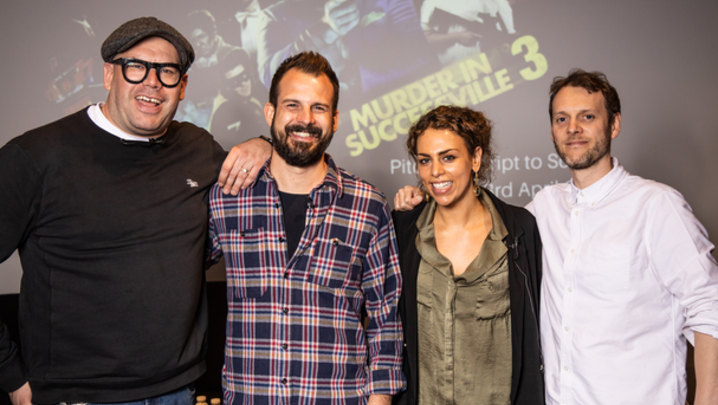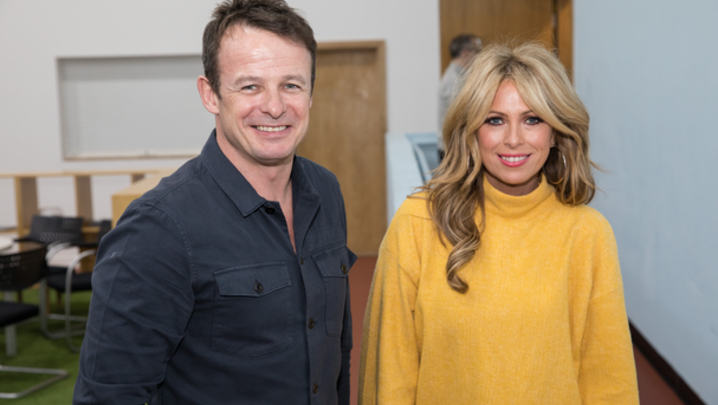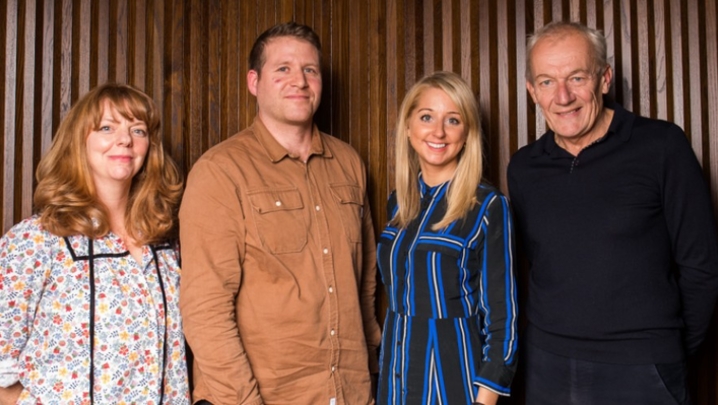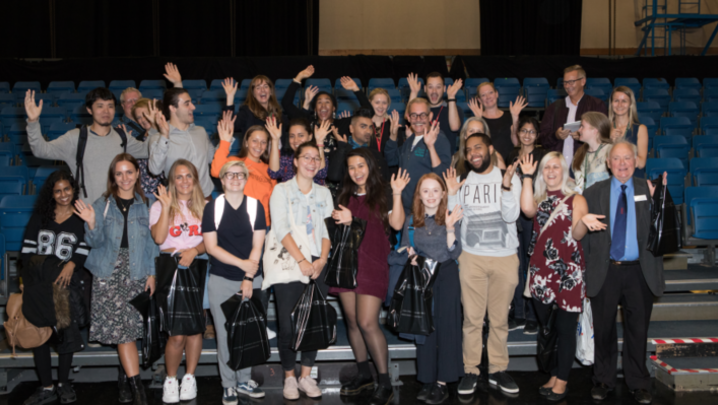More than 1,000 people attended the TV Careers Fair in early February, making it RTS Futures’ most successful event ever.
The students and young TV hopefuls were able to absorb advice from some of television’s biggest names, as well as its rising talent at the event, which was held in Islington, London. The all-day fair offered five sessions on getting started in telly, while in the exhibition hall some 40 broadcasters, independent producers and industry bodies were on hand to pass on their telly knowledge.
In the first session, “Get ready for your TV job”, Jude Winstanley, who runs TV jobs website theunitlist.com, advised her audience to forget the job titles of producer or director that they had enjoyed while making student films at university. “In the real professional world, you are not one of those,” she said, emphasising that telly novices start at the bottom, as runners or loggers.
She argued that it was vital to build a reputation in the industry as a reliable and enthusiastic worker: “It’s less about who you know, more about who knows you.”
Work experience is important, explained Winstanley, but it should never be exploitative: “There are loads of wannabe producers who will think nothing of using you to further their careers.” She added that internships should be paid and that volunteering should be reserved for charities.
In a session devoted to the entertainment genre, the National Film and Television School’s head of television, David G Croft, outlined a four-point plan: “One, look at yourself in the mirror and ask, ‘Do I really want a career in television?’”
“Two, try to work out what it is you want to do. Three, research the industry and understand how the industry works. Four, start making contacts with people who you could learn things from and who may be able to help you in your career.”
Before entering academia, Croft was a leading TV director whose credits included Shooting Stars and The Crystal Maze.
Children’s writer Hannah George, who made her TV debut with CBBC fantasy drama Wolfblood, revealed in the session, “From script to screen”, that before her big break she had been “writing and writing, sending scripts to people who would not read them”.
Persistence paid off for her. The writer advised: “Do not be scared to send people your scripts – I know so many writers who never send anything out. It’s very exposing sending someone your script, but you have to get over it.”
But you don’t have to be a writer to work in drama. Nawful Faizullah, a script editor at leading indie Left Bank Pictures, described his job as a “problem solver”, helping writers to “fix flaws or execute their vision for a show”.
In “How to make it as a presenter”, some of the UK’s leading TV and radio hosts discussed how they broke in to the industry. Countryfile presenter Anita Rani, who’s first media gig was on Leeds Student Radio, said: “You need to be tenacious – it takes a long time and you’ve got to be prepared to work for long hours doing things you don’t necessarily want to do.”
Practice, though, makes perfect. “Presenting is a craft that you develop over time –you can get better at it,” she added.
Melvin Odoom, who hosts the radio show Kiss Breakfast and ITV shows such as Bang on the Money, added: “Work experience for me was imperative to understand how the industry works.”
In the day’s final session, Josh Portwine from equipment supplier Shooting Partners cast his expert eye over the leading cameras on the market and offered advice on how to find work as a camera operator.
Visit out Facebook page for more photos
All photos by Paul Hampartsoumian
The TV Careers Fair was held at the Business Design Centre in London on 6 February, and supported by the Edinburgh International Television Festival, the National Film and Television School and Sky One.


